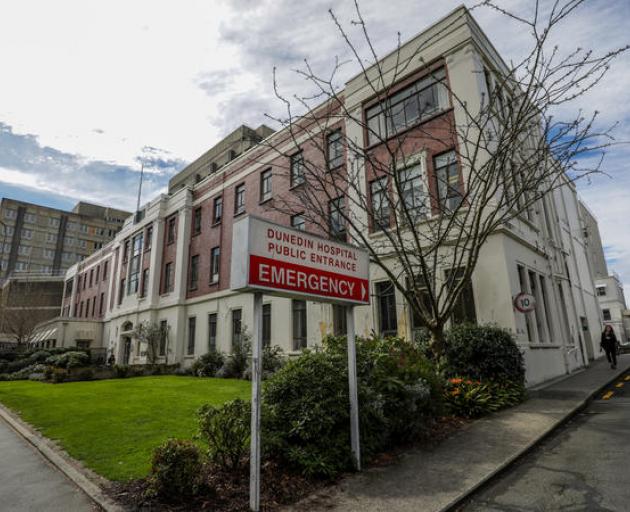
The Association of Salaried Medical Specialists (ASMS) said the spike in the last year was a natural consequence of falling staff numbers in an area where recruitment was especially difficult.
Figures provided by Te Whatu Ora Health New Zealand (HNZ) under the Official Information Act (OIA) also showed outsourcing had tripled for breast cancer patients.
HNZ Southern was supposed to employ a minimum of six fulltime equivalent radiation oncologists.
However, it had just two, and relied on locum support.
ASMS senior industrial officer Kris Smith said it was unsurprising outsourcing had increased given at least two had left Southern in the last year.
"The number has steadily gone down — last year there were more radiation oncologists."
As not all radiation oncologists specialised in the same area, the gaps had led to more outsourcing for prostate and breast cancer patients.
Employment packages offered elsewhere in Australasia, and especially Australia, were "significantly more attractive" than in the South.
The area did not have opportunities for radiation oncologists to undertake private work.
HNZ was working on packages that would make the area more attractive to prospective employees, although she was unsure when these would be finished.
"They’ve certainly been putting a lot of effort into trying to establish ... a work plan and compensation packets that would attract people."
Treating people locally was "absolutely" the ideal situation, although the radiation oncologist shortage was posing problems nationwide.
"The Christchurch services are equally slammed and they’re understaffed as well, so it’s a nationwide thing, but it’s impacted more [in Southern] because there aren’t other opportunities for people to set up, so they don’t stay in the area."
In the OIA response, HNZ said patients were occasionally sent to other healthcare facilities in order to reduce wait times because of reduced radiation oncologist numbers.
Between January and October this year, 46 Southern prostate cancer patients had been sent to another healthcare facility for treatment.
During that time, 150 people received curative treatment in the Southern region.
Outsourcing had jumped nearly fourfold compared with last year, when 12 prostate cancer patients were sent elsewhere throughout the entire year and 183 patients received curative treatment.
The reduced workforce was also impacting on breast cancer patients.
HNZ pointed to the lack of availability of radiation oncologists to see patients for a first specialist appointment (FSA) as a particular cause.
"There is treatment capacity in Te Whatu Ora Southern, but at that time not enough FSA capacity."
Between January and October this year, 33 breast cancer patients were sent to another healthcare facility for treatment.
During that time, 154 patients received curative treatment for breast cancer in the Southern region.
Throughout all of last year, 11 patients with breast cancer were sent to another facility.
That year, 168 patients received curative treatment for breast cancer.
By contrast, some types of cancer were dealt with entirely within Southern — no patients with bowel cancer or head or neck cancer had been outsourced for treatment.
"Currently our permanent radiation oncologists specialise in genitourinary, gastrointestinal, lung, gynecology and stereotactic radiosurgery.
"Our resident locums through April 2024 are covering head and neck and neurological and our visiting/remote locums cover breast.
"We still have the option to outsource ... but are managing to treat the majority of our current patients in Dunedin," HNZ said.
HNZ Southern did not pay for services if patients were treated in other public hospitals, the OIA said.
It would not say how much it had spent outsourcing to private facilities, citing the need for negotiations to be carried out without disadvantage.
The ODT has appealed to the ombudsman to have the question answered.
HNZ did not respond to clarifying questions about the information provided.











